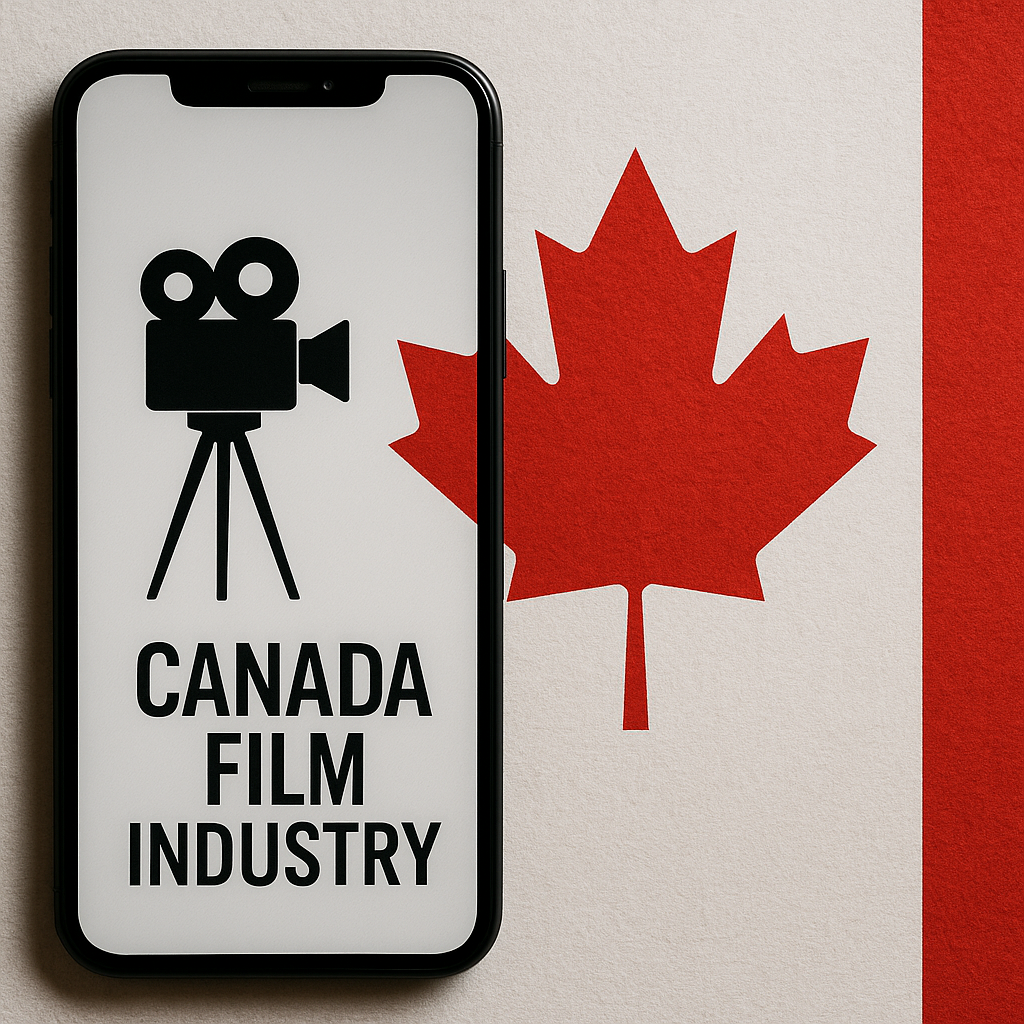Mobile filmmaking is changing the way stories are told across Canada. From Toronto’s busy downtown streets to the remote beauty of Yukon, filmmakers are now turning to their smartphones to create compelling content. Affordable, accessible, and surprisingly powerful, mobile devices have become legitimate tools for professional storytelling. Whether you’re a beginner or a seasoned creative looking to simplify your gear, here’s how you can get started with mobile filmmaking in Canada—covering tools, grants, and the growing community behind it.
Smartphones That Make the Cut
Today’s smartphones are built with advanced camera systems that rival some professional equipment. Devices like the iPhone 15 Pro, Google Pixel 8 Pro, and Samsung Galaxy S24 Ultra offer features such as 4K or even 8K video recording, cinematic stabilization, high dynamic range (HDR), and larger sensors for low-light shooting. These features allow creators to capture stunning video footage right out of their pocket.
If you’re looking to upgrade your phone before diving into mobile filmmaking, consider checking for local offers from iphone buyers near me. Upgrading to a device with improved video capabilities can significantly enhance your production quality.
Apps That Enhance Your Film Quality
Mobile filmmaking isn’t just about hitting record. Professional apps offer manual control over exposure, focus, ISO, and shutter speed, turning your phone into a high-end camera system.
FiLMiC Pro is a popular choice among serious mobile filmmakers, providing full control over the camera’s settings and enabling high-bitrate recording. LumaFusion is a professional video editing app available on iOS, which allows multi-track editing and advanced color grading. If you need something quicker and more beginner-friendly, apps like Adobe Premiere Rush or CapCut are great for editing social media videos.
Essential Accessories for Mobile Shoots
While the phone is the core of your setup, accessories can greatly enhance your production. Tripods like the JOBY GorillaPod or Manfrotto Pixi provide stability, especially for stationary shots. Gimbals such as the DJI Osmo Mobile 6 help you capture smooth motion, even when walking or tracking subjects.
Sound is often overlooked, but poor audio can ruin otherwise great visuals. Lavalier microphones like the BOYA BY-M1 or RODE SmartLav+ plug directly into your phone and provide clean dialogue recording. Investing in external lighting, such as small LED panels, is also beneficial for shooting indoors or at night.
Grants and Funding for Canadian Filmmakers
Canada supports its creative industries well, including emerging digital and mobile creators. Numerous grants, funding programs, and mentorship opportunities are available for filmmakers who choose to work on mobile devices.
The Canada Council for the Arts funds digital media, video art, and short-form film projects, especially from emerging artists. Telefilm Canada typically supports traditional feature filmmaking but is increasingly open to non-traditional formats. The National Film Board of Canada offers co-productions, mentorship, and opportunities to distribute documentary and socially relevant content.
At the provincial level, Creative BC, Ontario Creates, and the Alberta Media Fund provide development and production support. These organizations often accept proposals for short films, digital-first content, and even mobile-filmed work that meets cultural or artistic standards.
Youth and Emerging Filmmaker Programs
Programs specifically targeting young or first-time filmmakers are growing across the country. TIFF’s Next Wave is a youth-led initiative that supports creators under 25 through film labs, mentorship, and exhibition. Local film schools and media arts centers also run workshops on mobile filmmaking and digital storytelling.
Some public libraries in cities like Vancouver, Toronto, and Halifax offer free access to editing stations, cameras, and filmmaking workshops. These are excellent resources for creators working on a budget or starting out.
Where to Film in Canada
Canada offers diverse backdrops that are ideal for a variety of genres. Urban centers like Toronto and Montreal provide dynamic cityscapes, while the natural beauty of British Columbia, Alberta, and the Atlantic provinces opens doors for documentaries, travel films, and nature-based narratives.
Some standout filming spots include:
-
Graffiti Alley in Toronto for street-style visuals and music videos
-
Old Montreal for period pieces or travel films
-
Banff and Jasper National Parks for nature and adventure content
-
The Vancouver Seawall for lifestyle or cinematic establishing shots
Even shooting in your own neighborhood can work well. Mobile filmmaking encourages creativity with limited means, and a strong story often matters more than location.
Canadian Film Communities and Events
Community plays a big role in mobile filmmaking. In Canada, several festivals and organizations support and celebrate mobile content creators.
The Toronto Smartphone Film Festival (TSFF) is North America’s longest-running mobile film festival. It showcases short films made entirely on smartphones and offers networking opportunities with industry professionals. Reelworld Film Festival and the Montreal International Black Film Festival also support indie and mobile creators who bring diverse voices to the screen.
Online, there are active communities in Facebook groups such as Canadian Mobile Filmmakers or iPhone Filmmaking Canada. Reddit forums like r/Filmmakers and r/iPhoneography provide advice, gear reviews, and critiques. These spaces are perfect for learning from others, sharing work, and staying motivated.
Tips for a Successful Mobile Shoot
Preparation is key, even for mobile films. Always plan your shots ahead of time and storyboard your scenes. Shoot in landscape mode for cinematic quality, and lock focus and exposure to avoid shifting during scenes.
Use airplane mode while filming to avoid interruptions, and regularly back up your footage to a cloud service or external drive. Practice different lighting setups using natural light or small LED panels. Most importantly, don’t neglect sound—always monitor your audio while recording, and use a clip-on mic when possible.
Canadian Creators Making Waves with Smartphones
Several Canadian filmmakers and content creators have made a name for themselves using only mobile devices. Music videos, short documentaries, and viral social content have all been created on phones and have received festival recognition or gone viral on platforms like TikTok and Instagram.
Sean Brown, a Toronto-based director, has shot segments of music videos on iPhones. Several filmmakers featured in the Toronto Smartphone Film Festival have gone on to develop projects for larger screens. Social media creators across the country use mobile video to produce compelling, authentic content that resonates globally.
Conclusion
Mobile filmmaking is no longer just a niche hobby—it is a legitimate, powerful tool for storytelling. In Canada, the combination of accessible technology, funding opportunities, and supportive creative communities makes it an ideal place to start your mobile film journey.
If you’re working with outdated equipment, now is the perfect time to upgrade. You can explore local options to sell used iPhone near me and invest in gear that elevates your filmmaking potential.
The stories waiting to be told are endless. All you need is a phone, a story, and the will to begin. With the right tools, support, and inspiration, your filmmaking journey in Canada can start today.




